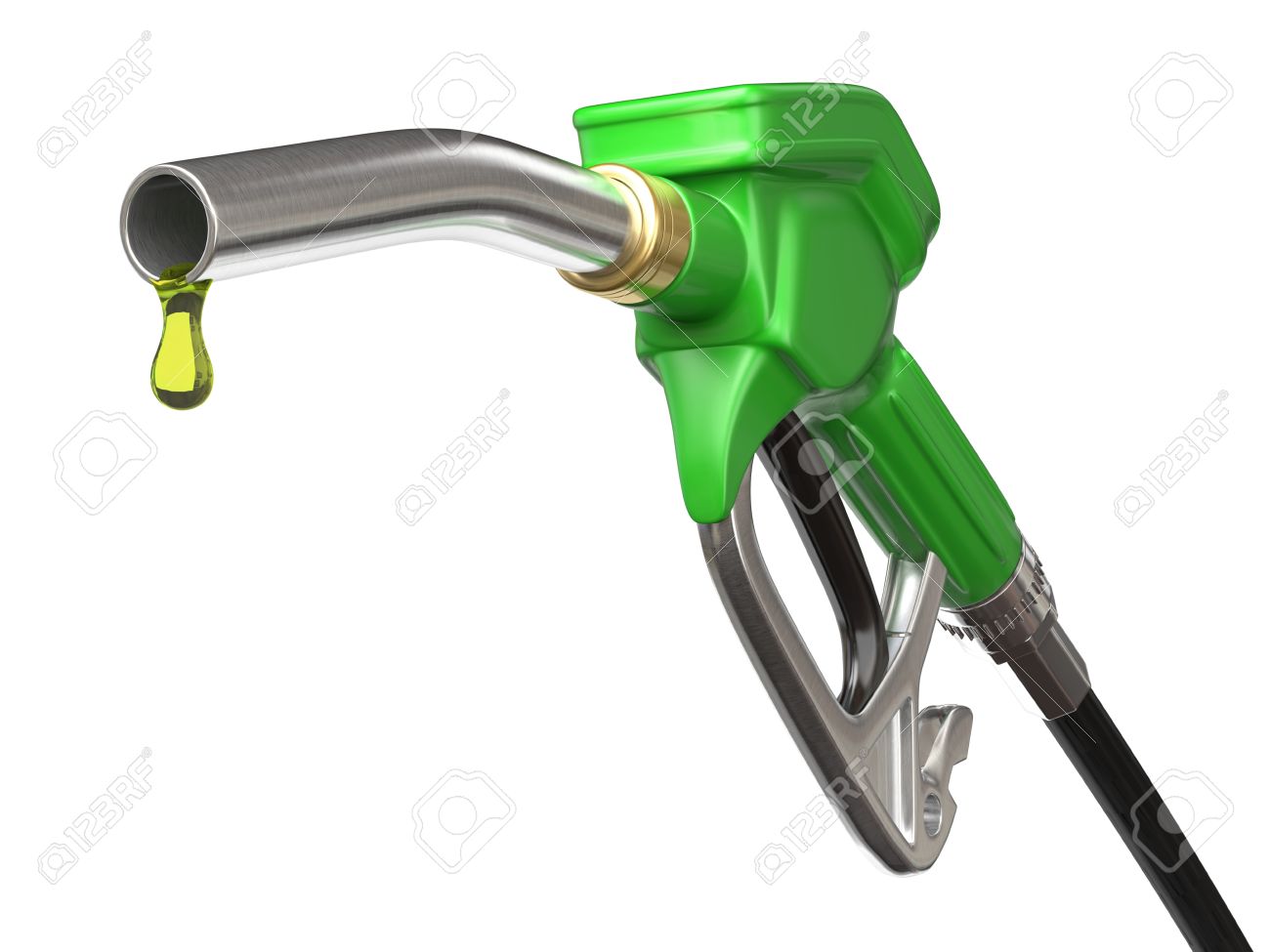News
Fuel Pump Price Jumps By 91% In Six Years –Report

The cost of fuel pump increased from N87 per litre as of December 2015 to N165.77 by December 2021, showing an increase of 90.54 per cent.
This is according to the Fuel Pump Price Per Litre – Average (PMS) data from the Central Bank of Nigeria.
The Nigerian National Petroleum Corporation became the sole importer of petrol in Nigeria in 2016 after the Federal Government introduced the price modulation mechanism, which saw the pump price of the commodity rise.
A few months after the hike in May 2016, the value of crude oil in the international market soared, while the value of Nigeria’s currency, the naira, slid to almost N500/dollar, from about N197 to the dollar.
This affected the landing cost of petrol, which rose steeply, and the country not willing to hike the pump price of the commodity again, soon returned to subsidising the product.
The NNPC said that fuel subsidy gulped N306.92bn in 2015.
In 2021, the NNPC said fuel subsidy gulped N1.43tn, although there was no record for under-recovery in January.
This means that the cost of fuel subsidy rose by 365.92 per cent within the six-year period.
The NNPC called the subsidy payments under-recovery and deducted it from the proceeds of its domestic crude oil sales, before making remittances to the Federation Account.
The President, Major General Muhammadu Buhari (retd.), announced himself as substantive Minister of Petroleum in 2015. Before his regime, Buhari had denied the existence of fuel subsidy, describing it as fraud.
However, as a president, Buhari has failed to address the fuel subsidy crisis, which drains government revenue.
The World Bank and the International Monetary Fund have decried the continued spending by the Nigerian government on the petrol subsidy, urging the government to end the subsidy regime.
However, the Nigeria Labour Congress and other pressure groups and trade unions had threatened nationwide protests against the removal of the fuel subsidy.
Although the Federal Government had planned to eliminate the fuel subsidy by June 2022, the government backtracked on the plan and extended the subsidy regime by 18 months.
READ ALSO: Fuel Subsidy Puts Nigerian Economy At High Risk, World Bank Warns
The Nigerian Bar Association, amongst others, had described the decision of the All Progressives Congress-led government to suspend its planned petrol subsidy removal as an election strategy.
Also, the NNPC has said a total of N4tn from the Federal Government is required to fund the fuel subsidy in 2022.
Recent figures from the NNPC showed that fuel subsidy gulped N675.93bn in the first quarter of 2022.
According to the oil firm, fuel subsidy gulped N210.38bn, N219.78bn, and N245.77bn in January, February, and March 2022 respectively.
The President’s Special Adviser on Media and Publicity, Femi Adesina, earlier this year said Nigerians will have to pay a price to continue subsidising PMS, adding that the country might be left with no other choice but to continue borrowing to shoulder its fiscal overhead.
News
Accept Free Flights, $3,000 Cash To Leave Or Risk Arrest – US Tells Illegal Immigrants

The United States government has announced a Christmas self-deportation incentive, offering undocumented immigrants free flight tickets and a $3,000 cash bonus to voluntarily leave the country before the end of the year.
The announcement was made in a statement released on Monday, December 22, by the Department of Homeland Security (DHS), which warned that undocumented immigrants who ignore the offer risk arrest, forced deportation, and a lifetime ban from re-entering the United States.
According to the DHS, undocumented immigrants who enrol in the programme before December 31 will receive fully funded travel arrangements to their home countries, along with a $3,000 stipend.
“Illegal aliens who sign up to self-deport through the CBP Home app by the end of the year will receive a $3,000 stipend in addition to a free flight home,” the department said.
READ ALSO:
The initiative is being implemented through the CBP Home mobile application, which allows undocumented immigrants to register for voluntary departure. Participants will also benefit from waived civil fines and penalties related to overstaying or previous failure to leave the country.
DHS said the policy has already yielded significant results, with a marked increase in voluntary departures.
“Since January 2025, approximately 1.9 million illegal aliens have voluntarily self-deported, with tens of thousands using the CBP Home programme,” the statement said.
Homeland Security Secretary Kristi Noem described the initiative as a temporary goodwill gesture tied to the Christmas season, noting that the incentive had been tripled for the holidays.
READ ALSO:
“During the Christmas season, the US taxpayer is generously tripling the incentive to leave voluntarily, offering a $3,000 exit bonus, but only until the end of the year,” Noem said.
She warned that those who fail to take advantage of the offer would face strict enforcement measures.
“Illegal aliens should take advantage of this gift and self-deport. If they don’t, we will find them, arrest them, and they will never return,” she said.
The DHS assured interested migrants that the process is straightforward and fully handled by the government.
“Self-deportation through the CBP Home app is fast, free, and easy. DHS will take care of everything, including travel arrangements,” the department said.
The agency reiterated that undocumented immigrants who ignore the programme would be subject to arrest, forced removal, and permanent restrictions on future entry into the United States.
News
Benue: Five Killed As Suspected Herdsmen Attack Ortese, Block Major Road

No fewer than five youths have reportedly lost their lives in a deadly attack attributed to suspected Fulani herdsmen in Ortese, Guma Local Government Area of Benue State.
According to local accounts, the assailants barricaded the Ortese–Yogbo road during the attack, ambushing and killing the victims at the scene.
Several other residents were said to have been forcibly taken to undisclosed locations.
The assault has sparked widespread fear in the community, with residents expressing concern over their safety as tensions continue to rise.
READ ALSO:Forest Reserve: Okpebholo Broker Peace Between Host Communities, Investors
Community sources revealed that additional bodies are being found in nearby areas, further worsening the situation.
As of the time of filing this report, security agencies have not released an official statement on the incident, although investigations are ongoing and efforts are underway to restore calm in Ortese and surrounding communities.
News
86 Years Memorial Of Capt. Sir Walter Ededuna Obaseki

In loving, ever green and very precious 86 years memorial of our grand patriarch,
His Excellency,
The right honourable,
the most distinguished ambassador
Capt. Sir Walter Ededuna Obaseki (A.K.A Okhien’Ewere)
GBE GCB GCMG KCB KBE CBE OM CH PC DSO
Head of Hovernment
British Administrator
and
Prime Minister in the British Nigerian Government.
Governor of the British Board of Trade.
Captain of the British Merchant navy.
World war II veteran
and a recipient of the world war II campaigns and gallantry medals of honour;
I. The 1939-1945 Star
II. Atlantic Medal
III. British War Medal
IV. Italy Star
Awarded to officers and seamen of the British merchant navy by HRM King George VI
Daddy, your good life is worthy of emulation
Your public works and legacy open great doors for us your descendants
You plotted the skies, mapped the land and chatted the oceans and high seas to threshold development in our great nation Nigeria. as a pioneer industrialist you successfully brought your people to understand and become part of the modern world governnent.
Ededuna Walter Obaseki together with the British established government agencies, built public facilities, institutions and parastatals of government and also brought law and order to the way things are done according to the standards of international best practice as we have it even in The international community.
Those who tried to steal your glory and change the true position of things failed woefully, their evil craftsmanship have since been exposed to everyone because the truth cannot be hidden completely forever.
May your memory never ever go to oblivion!
Just as it is written in The Holy Book
Proverbs 10: 7.
The memory of the just is blessed: but the name of the wicked shall rot.
Psalm 112: 6.
The Righteous Shall be remembered forever!
Signed:
The Scion of Sir Walter Ededuna Obaseki;
Mercy Ededuna Obaseki
for
The entire direct descendants of Capt. Sir Walter Ededuna Obaseki GCMG CBE DSO OM CH PC

 News1 day ago
News1 day agoPHOTOS: New Era In Furupagha-Ebijaw As Okpururu 1 Receives Staff Of Office

 News4 days ago
News4 days agoFormer Delta North senator Peter Nwaoboshi Dies

 Metro3 days ago
Metro3 days agoJUST IN: Former Edo Information Commissioner Is Dead

 News5 days ago
News5 days agoGrassroots To Global Podium: Edo Sports Commission Marks Enabulele’s First Year In Office

 News4 days ago
News4 days ago[OPINION] Tinubu: Ade Ori Okin Befits KWAM 1, Not Awujale Crown

 Metro3 days ago
Metro3 days agoShe Grabs, Pulls My Manhood Anytime We Fight — Husband

 News4 days ago
News4 days agoCoordinator, Edo First Lady Office, Majority Leader, Rights Lawyer, Others Bag 2025 Leadership Award

 News4 days ago
News4 days agoDelta Speaker Advocates Strict Legislative Protection Of N’Delta Environment

 Metro3 days ago
Metro3 days agoWhy I Charged My Husband Money For Sex —Woman

 News1 day ago
News1 day agoFG Declares Public Holidays For Christmas, New Year Celebrations
































